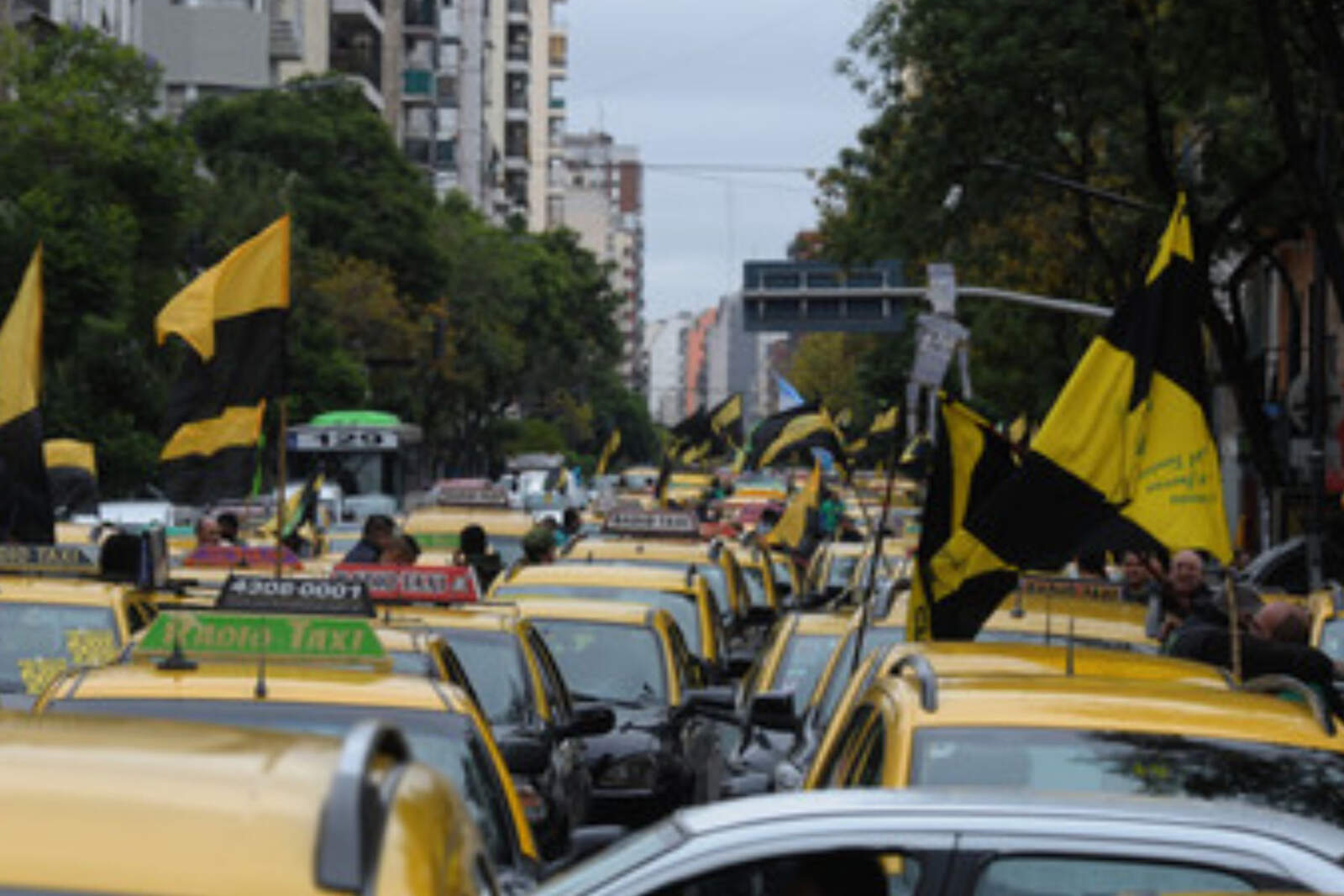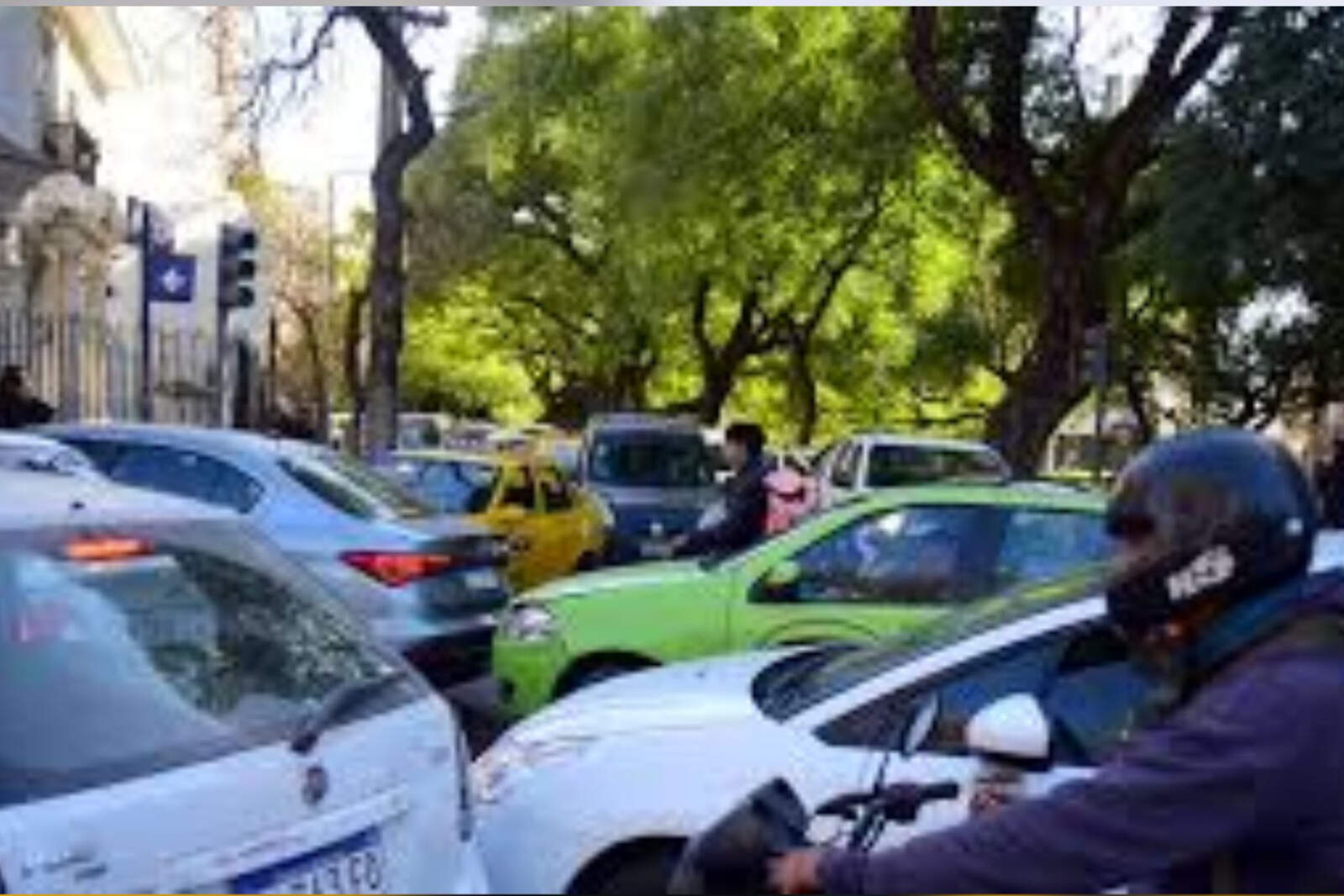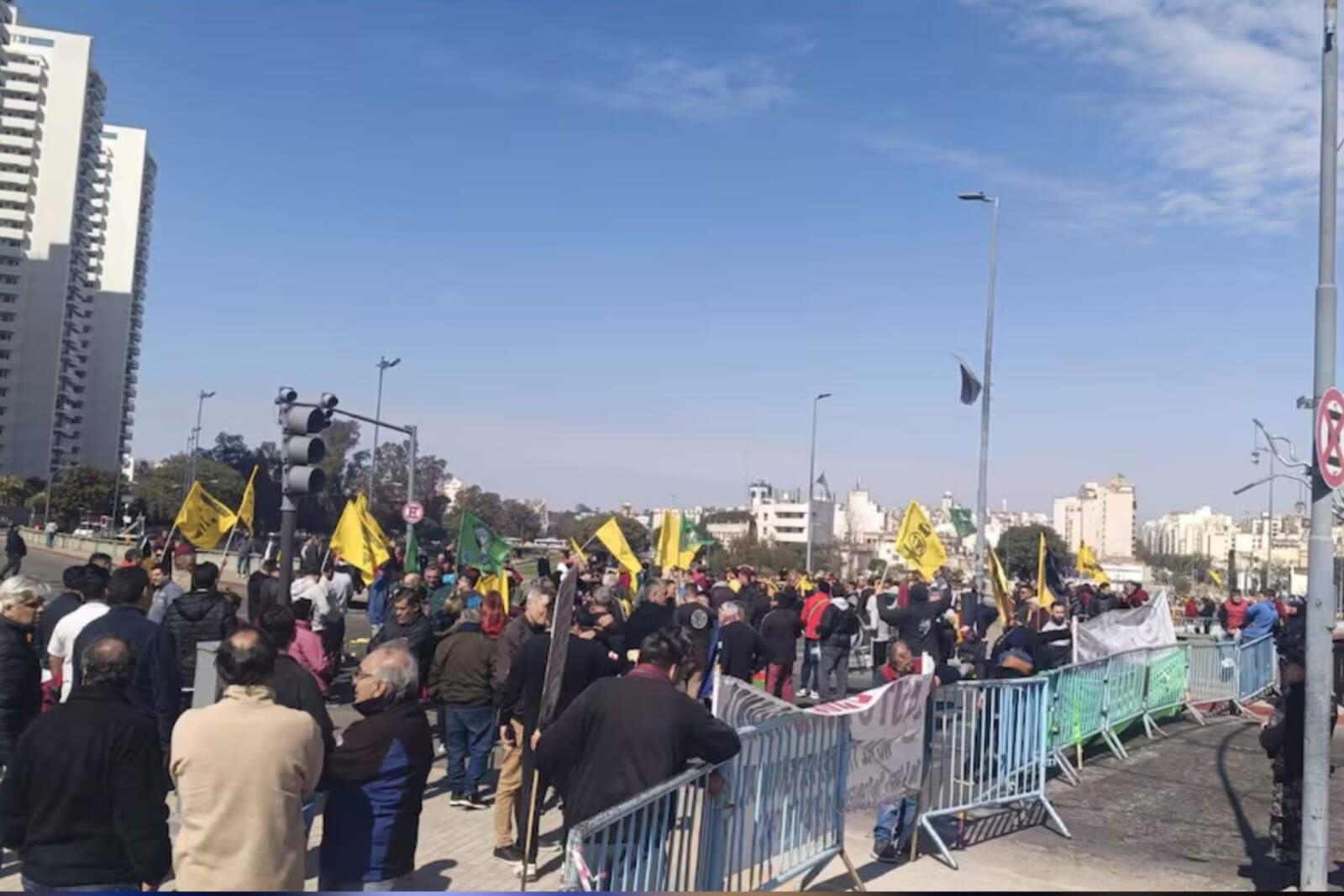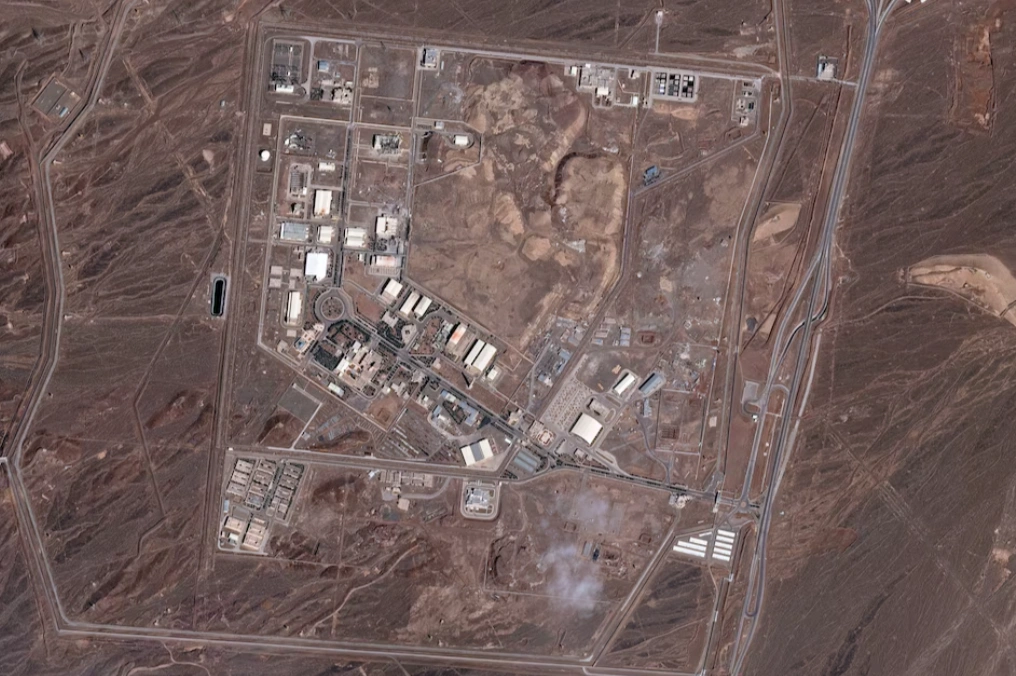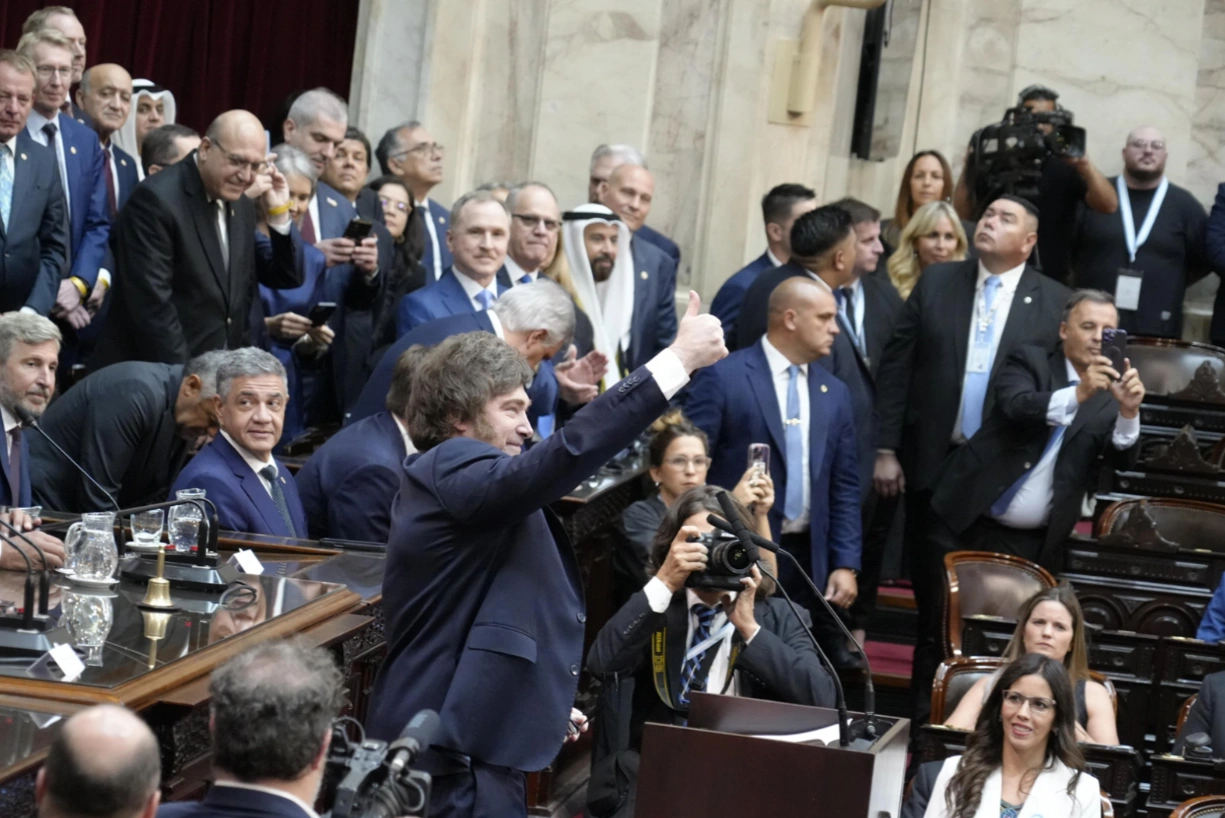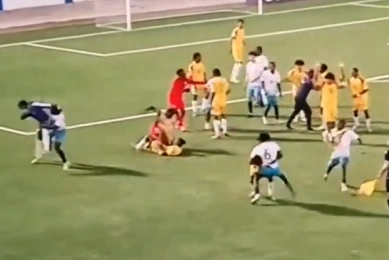With 28 votes in favor, 2 against, and 1 abstention, the City Council approved regulation of transportation apps without a driver quota. The session was marked by pressure from the taxi drivers' and workers' union, who filled the streets. Since mid-morning, the city was engulfed in total chaos due to roadblocks and closures.
The union members marched along Costanera Norte and blocked key bridges such as Alvear and Maipú. Barricades and a strong police operation attempted to contain the incidents. Traffic became impossible, and the downtown area was paralyzed by a bottleneck effect on the main arteries.
Access to the microcenter and several nearby areas was brought to a standstill. Service roads and avenues connecting to outlying neighborhoods experienced prolonged traffic jams. Ambulance and public transportation circulation was also severely affected.
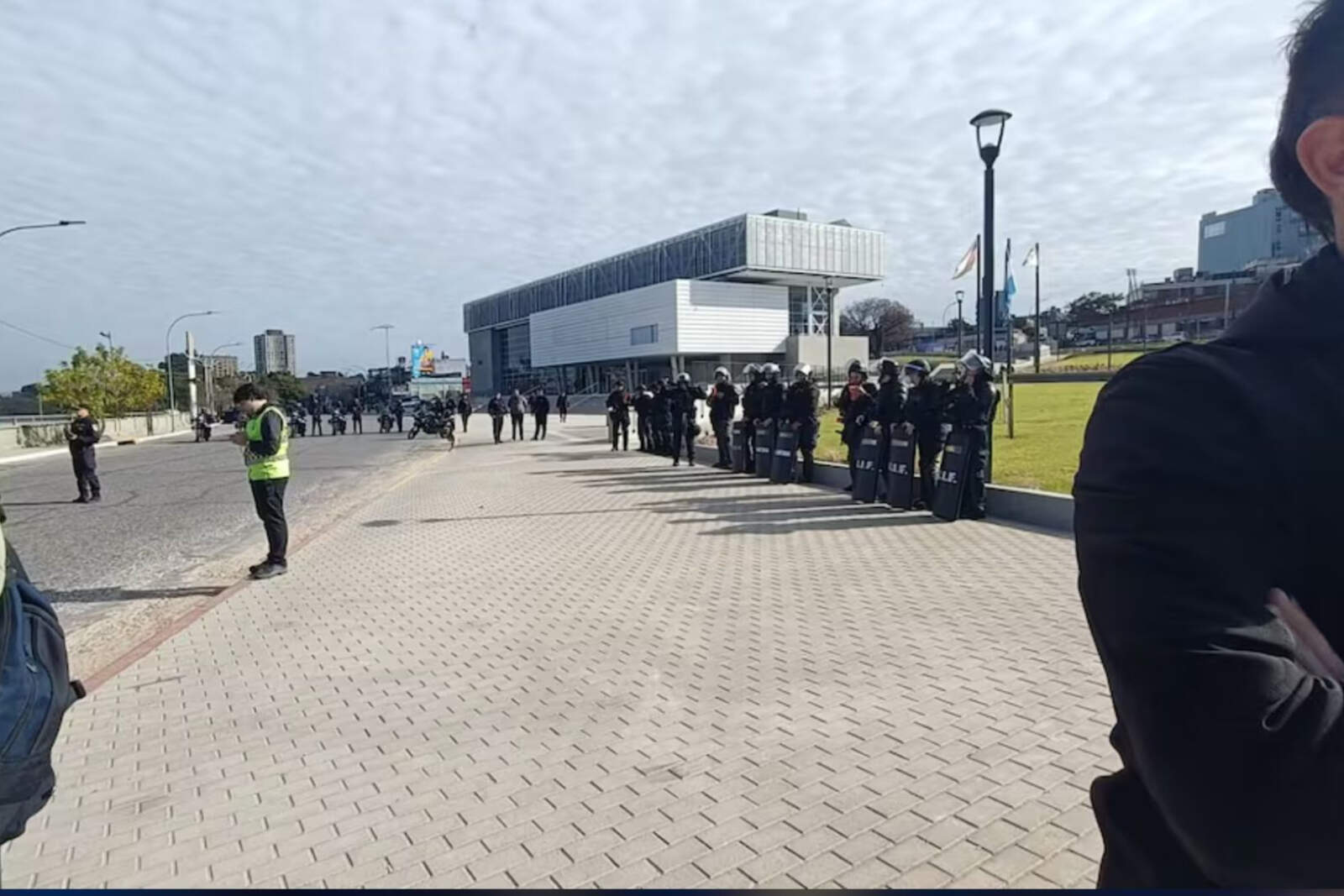
Protest with incidents and violence
As the session progressed, tension increased in the vicinity of the Council. There were shoving, insults, and scuffles between protesters and police officers. The burning of tires worsened the situation and added thick smoke to the downtown area.
The union demanded to halt the ordinance that eliminates the license quota for Uber, Didi, and Cabify. They argue that the platforms create "unfair competition" and call for greater restrictions. However, the new regulation still keeps strong state control over the apps.

